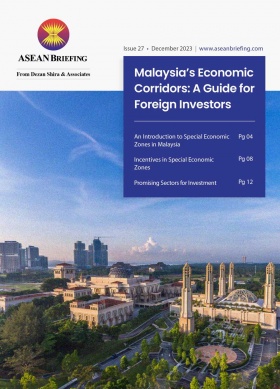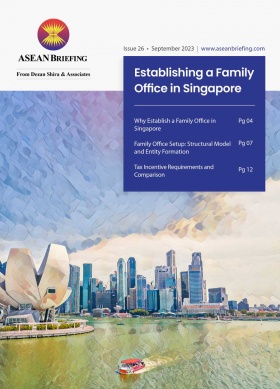Malaysia’s Budget 2024: Impact for Individuals
Following the unveiling of Malaysia’s ambitious 2024 budget, marked as the largest in the nation’s history with an allocated budget of 303 billion ringgit (US$64.7 billion), significant changes have been introduced to the country’s tax landscape. Designed to address fiscal responsibilities and reduce the deficit to 4.3 percent, the budget brings forth structural alterations that will notably impact businesses and individuals.
For individuals, these changes extend beyond mere fiscal adjustments, delving into the introduction of a capital gains tax and a noteworthy increase in service tax. These modifications signal a shift in the financial landscape for Malaysian citizens, with implications for various aspects of their economic activities and expenditures.In this article, we delve into the key highlights of Malaysia’s 2024 budget for individuals and families.
Key highlights of Malaysia’s budget 2024
Tax relief enhancements
Expansion of tax relief
The 2024 budget introduces an expanded lifestyle tax relief, granting individuals an annual tax benefit of 2,500 ringgit (US$535.39). This relief covers expenses related to self-skills enhancement courses, such as language studies, photography, and sewing.
Notably, the relief excludes sports equipment and gym memberships, emphasizing a focus on non-physical skills development.
Increased annual tax relief for sports-related expenses
The budget elevates the annual tax relief for sports-related expenses from 500 ringgit (US$106.98) to 1,000 ringgit (US$214.4). Individuals can now claim relief for the purchase of sports equipment, including fees for sports facilities, competitions, and training.
Broadening medical expense tax relief
The scope of the annual tax relief for medical expenses increases to 10,000 ringgit (US$2145.4). This expansion includes up to 1,000 ringgit (US$214.4) for dental examination and treatment expenses.
Additionally, the relief for parents’ medical expenses rises to 8,000 ringgit (US$1,717.6), allowing up to 1,000 ringgit (US$214.4) for a full medical examination.
Family and childcare support
Increased childcare allowance tax exemption
The 2024 budget introduces an augmentation in the childcare allowance tax exemption. This adjustment raises the exemption from the previous threshold, providing added financial support for families with children up to the age of 12.
Extension of income tax exemption for women returning to work
Recognizing the importance of encouraging women to re-enter the workforce, the budget extends the income tax exemption for women returning to work. The extended exemption period, until YA2028, facilitates a smoother transition for women resuming their careers after a hiatus.
Extension of returning Expert Program with additional incentives
The Returning Expert Program sees an extension, with additional incentives for individuals returning to contribute their expertise to Malaysia. Approved applicants will now benefit from a 15 percent income tax rate on employment income for five consecutive years, coupled with an excise duty exemption of up to 100,000 ringgit (US$21,399.5) for the purchase of a Completely Knocked-Down (CKD) vehicle.
Education and skills development
Extension of tax relief for upskilling courses
The budget extends the annual tax relief of up to 2,000 ringgit (US$429.1) for fees related to attending upskilling or self-enhancement courses.
This extension is applicable until YA2026, emphasizing the government’s commitment to fostering continuous education and skill development.
Continuation of tax relief for EV charging facilities
Individuals investing in the future of sustainable transportation will benefit from the extension of the annual tax relief of up to 2,500 ringgit (US$535.3) for the purchase, installation, rental, and subscription fees for electric vehicle (EV) charging facilities.
This relief is extended until YA2027.
Expansion of tax deduction for donations to educational programs
The budget broadens the tax deduction on donations, allowing contributions of up to 10 percent of aggregate income to institutions, organizations, or funds approved under section 44(6) of the Income Tax Act 1967.
This expansion now includes donations earmarked for implementing education programs, including sports education.
Stamp duty reforms
Flat rate stamp duty for property transfers to non-citizens
In a move to streamline property transactions, a flat rate stamp duty of 4 percent (instead of ad valorem rates) will be imposed on instruments of transfer for real properties to non-citizen individuals (excluding Malaysian permanent residents).
Stamp duty on property transfers with eligible beneficiary renouncement
The 2024 budget introduces a stamp duty of 10 ringgit (US$2.13) on property transfers where the eligible beneficiary renounces their right to another eligible beneficiary, as per a will or the Distribution Act 1958.
Investment incentives
Extension of tax incentive for angel investors
To stimulate investment in startups and emerging businesses, the budget extends the tax incentive for angel investors.
This extension spans three years, covering investments made from January 1, 2024, to December 31, 2026, providing a favorable environment for those supporting entrepreneurial ventures.
Continuation of income tax exemption for equity crowdfunding
The 2024 budget maintains the income tax exemption for individuals investing through equity crowdfunding platforms. This incentive, applicable for another three years, encourages participation in crowdfunding initiatives, fostering financial support for innovative projects.
The extension covers investments made through a Limited Liability Partnership nominee company, enhancing flexibility in investment channels.Introduction of special income tax rates for film production and global services hub appointments
A strategic move to boost the creative industry and global business services, the budget introduces special income tax rates, including:
- Film production companies, actors, actresses, and production crew conducting film shoots in Malaysia will enjoy a 0 percent to 10 percent special income tax rate for three consecutive years.
- Non-citizen individuals holding key or C-suite positions with a monthly salary of at least RM35,000, appointed by a new company approved with Global Services Hub tax incentive, will be eligible for a 15 percent special income tax rate for three consecutive years.
This initiative, applicable to applications received by MIDA from October 14, 2023, to December 31, 2027, aims to attract talent and investment in these crucial sectors.
Indonesia’s Corporate Income Tax 2024: Calculating Benefits-in-Kind, Amortization, and Depreciation of Asset
Webinar |Tuesday, January 16, 2024 / 3:00 PM Jakarta / 4:00 PM China / 9:00 AM CET
In this webinar, Putwi Firdayanti, Assistant Manager of Corporate Accounting Services, will guide you in optimizing the newly implemented Indonesian tax regulation updates in your Indonesian corporate and individual income tax reporting.
EPF and SOCSO enhancements
Increase in matching contributions for the i-Saraan Program
The 2024 budget brings forth a boost in the i-Saraan program, increasing the matching contribution to 500 ringgit (US$106.9) per year, up to a lifetime maximum of 5,000 ringgit (US$1069.8).
This enhancement is geared towards promoting long-term savings and financial security through the Employees Provident Fund (EPF).
Increase in matching contributions for the i-Suri Program
To further support the well-being of female contributors, the budget introduces an increase in the matching contribution for the i-Suri program.
This increment raises the annual contribution to 300 ringgit (US$64.2) per year, up to a lifetime maximum of 3,000 ringgit (US$644.1), strengthening the financial resilience of women participating in the EPF.
Expansion of the i-Sayang Program for EPF contributions transfer
The i-Sayang program sees an expansion in scope, allowing working wives to transfer 2 percent of their EPF contribution to their husbands.
This move aims to facilitate greater flexibility and collaboration within households concerning EPF contributions, aligning with evolving family dynamics.
Increase in monthly wage ceiling for SOCSO contributions
Acknowledging the changing economic landscape, the budget includes an increase in the monthly wage ceiling for Social Security Organisation (SOCSO) contributions.
The threshold is elevated from 5,000 ringgit (US$1069.8) to 6,000 ringgit (US$1,284.9), ensuring that a broader spectrum of income levels can benefit from social security coverage.
Monthly incentive for employers hiring individuals from vulnerable groups
The 2024 budget introduces a monthly incentive for employers who hire individuals from vulnerable groups.
This initiative provides financial support of up to 1,500 ringgit (US$320.99) per month for a duration of up to six months, incentivizing companies to contribute to social inclusion by employing individuals such as those with disabilities, ex-convicts, and senior citizens.
Conclusion
The 2024 budget not only addresses immediate financial considerations but lays the groundwork for a prosperous and inclusive future for the people of Malaysia.
Individuals are encouraged to seize the opportunities presented by these changes, navigate the challenges, and participate actively in shaping a resilient and dynamic economic landscape.
To learn more about the budget’s implications for businesses, refer to our latest article.
About Us
ASEAN Briefing is produced by Dezan Shira & Associates. The firm assists foreign investors throughout Asia and maintains offices throughout ASEAN, including in Singapore, Hanoi, Ho Chi Minh City, and Da Nang in Vietnam, in addition to Jakarta, in Indonesia. We also have partner firms in Malaysia, the Philippines, and Thailand as well as our practices in China and India. Please contact us at asean@dezshira.com or visit our website at www.dezshira.com.
- Previous Article Friendshoring: Verlagerung von Aktivitäten in Asien und China+1
- Next Article Malaysias Haushalt 2024: Auswirkungen auf die Wirtschaft








